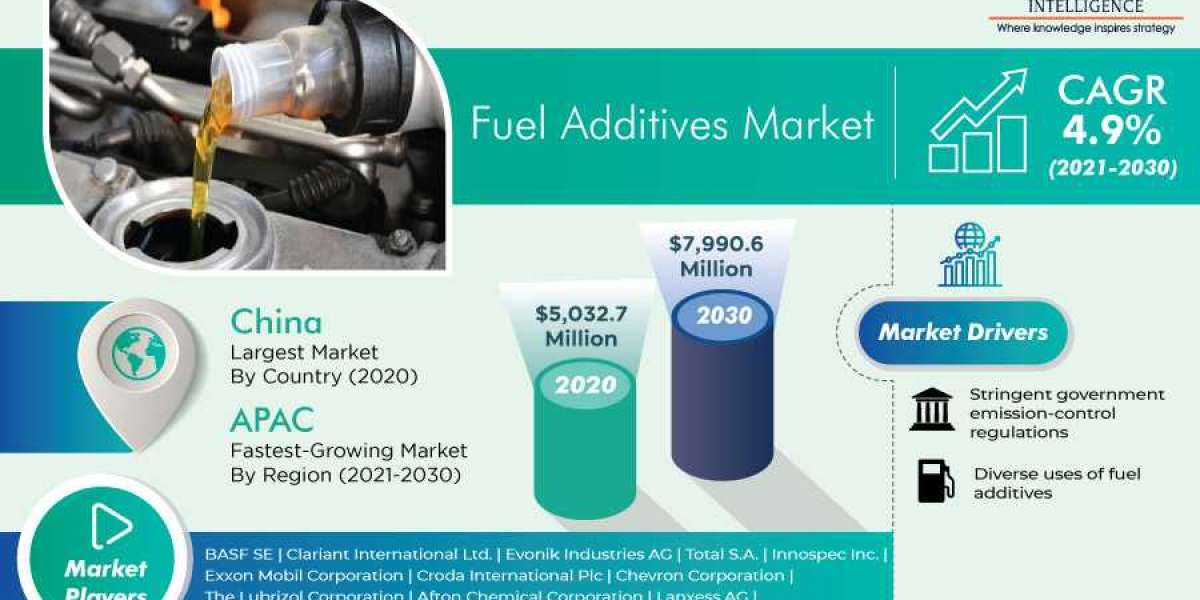The fuel additives industry is projected to rise in the coming years, and generate $7,990.6 million revenue in 2030. It is ascribed to strict government regulations and various fuel additives applications.
Under the type segment, the fuel additives industry is projected to capture the largest industry share, and it is projected to retain its position in the coming years. It is ascribed to the multifunctional usage of such additives. That is why companies prefer to produce these additives massively.
Moreover, these products are utilized for both diesel and gasoline fuel, which is why it is projected to lead the industry in the coming years.
Under the application segment, the diesel category captures the largest industry share. It is ascribed to the wide preference of people for diesel vehicles running on gasoline. In addition, diesel is widely utilized in generators as a marine fuel.
APAC captures the largest industry share, and it is projected to follow the same trend in the coming years. It is ascribed to the expansion of the petrochemical industry. Moreover, China captures a significant industry share, led by continuous RD in such products and expansion of the automotive industry.
Presently, fuel additives are widely launched by companies, as they focus on improving their product portfolio, and increasing their industry share. Numerous such fuel additive manufacturers are launching these advanced products for both diesel and gasoline.
In addition, numerous company players are concentrating on launching antifreeze products to cater to consumer requirements in countries, where fuel is often got frozen due to excess cold. Such fuel additives can be utilized for controlling the operating temperature in high-revving Powersports and hot-running applications.
Fuel additives are compounds formulated to improve fuel efficiency and quality, and used in motor vehicles. They boost the octane rating of the fuel or act as lubricants or corrosion inhibitors, thus, facilitating the usage of higher compression ratios for greater power and efficiency.
Fuel additives are utilized to avoid issues such as stumbling, stalling, weak acceleration, and rough idling.
Fuel additives are available in various forms, including power or pill, and liquid. They function in various ways and claim to perform various things to fuel. It includes removing sludge, improving combustion, controlling soot, and acting as a biocide.
A fuel additive is any liquid added to the fuel supply of vehicles, through a filler cap or other parts of the fuel system. Fuel additives improve engine performance, which facilitates further travel on gas infused with additives.
Fuel additives aid engine maintenance, by preventing the building up of sludge and other deposits in various areas of the engine, thus expanding the life of the vehicle. Fuel additives also improve the lubrication of working components. Thus, it reduces the wear and tear of the moving parts.
The major companies operating in the industry are; Clariant International Ltd., Croda International Plc, The Lubrizol Corporation, Total S.A., Evonik Industries AG, and Innospec Inc.
Therefore, the increasing requirement to improve fuel efficiency boosts the demand for fuel additives.
Source: PS Intelligence







